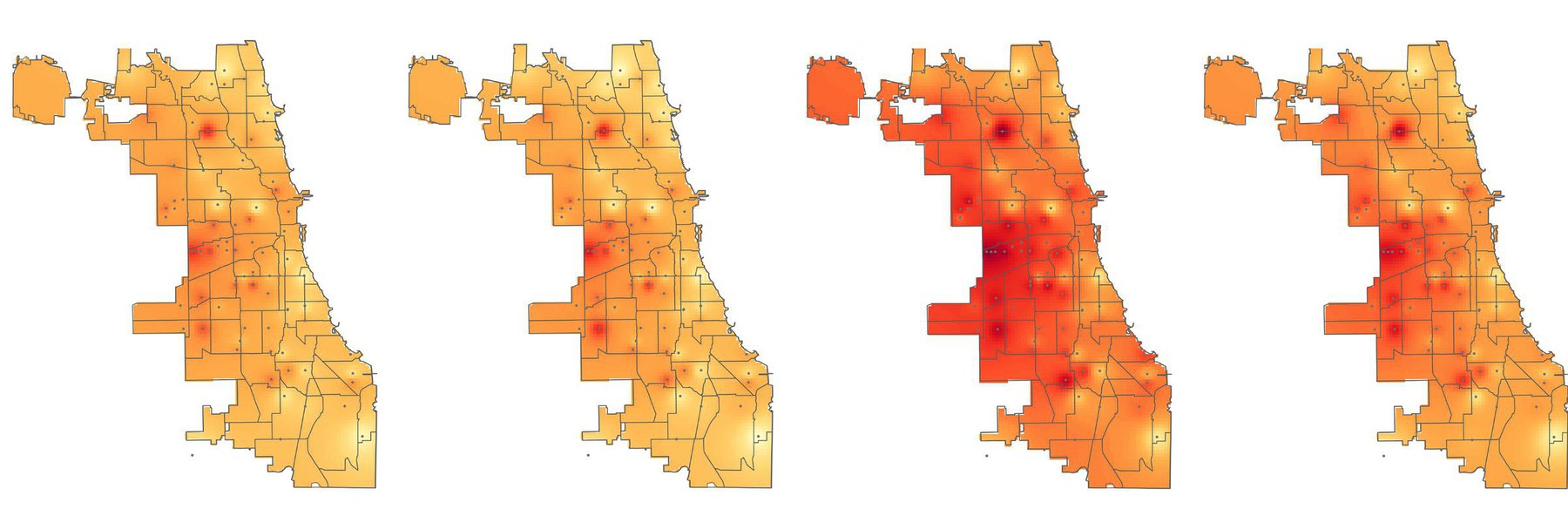Public records helped tell some important stories this week, ranging from the hidden dangers of the food we eat to the data that increasingly shapes our lives. Here’s some inspiration for your own transparency fight.
See a great use of public records we missed? Send over your favorite FOIA stories via email, on Twitter, or on Facebook, and maybe we’ll include them in the next roundup. And if you’d like even more inspiration, read past round ups.
Careful with those crackers
Internal Food and Drug Administration emails obtained via FOIA highlight how scientists have been finding glyphosate in a variety of foods, like crackers, granola cereal, and corn meal.
What’s glyphosate? A key ingredient in a variety of weedkillers, and likely a carcinogen.
Carey Gillam investigated the issue for the Guardian:
Thompson’s detection of glyphosate was made as he was validating his analytical methods, meaning those residues will probably not be included in any official report.
Separately, FDA chemist Narong Chamkasem found “over-the-tolerance” levels of glyphosate in corn, detected at 6.5 parts per million, an FDA email states. The legal limit is 5.0 ppm. An illegal level would normally be reported to the Environmental Protection Agency (EPA), but an FDA supervisor wrote to an EPA official that the corn was not considered an “official sample”.
When asked about the emails and the agency’s testing, an FDA spokesman said only that the FDA had not found any illegal levels in corn, soy, milk or eggs, the four commodities it considers part of its glyphosate “special assignment”. He did not address the unofficial findings revealed in the emails.
The FDA’s official findings should be released later this year or early in 2019 as part of its 2016 annual residue report. The reports typically are released two to two and a half years after the data is collected.
Read the full story at the Guardian.
Chicago Police Department keep a list of 128,000 alleged gang members
Annie Sweeney reports on how public records are raising questions about just who the Chicago Police Department considers a gang member. The Chicago Tribune requested the department’s “gang database,” and found it included a staggering 128,000 people - and that does not include juveniles, whose names the city said were exempted from disclosure.
According to records released to the Tribune through a Freedom of Information Act request, Chicago police records show 128,000 people listed as gang members. But even that massive number is likely far off the mark because the Police Department, citing privacy law, declined to release information on juveniles - a key component of gangs.
The department declined to give the total number of juveniles it considers to be gang members.
The designations go back decades in some cases, raising questions about their accuracy. Two gang members were said to be 132 years old, apparent typos, while another was listed as 84. In fact, the list includes 12,000 purported gang members now 50 or older - an eye-popping number for what is generally considered a young man’s game.
Read the full story at the Chicago Tribune. An initial report on the gang database from the University of Illinois at Chicago’s Policing in Chicago Research Group is embedded below.
A former student;s fight for transparency unveils surprising campus influence
Samantha Parsons of UnKoch My Campus started requesting documents about the Koch Foundation’s influence at George Mason University while a student there, and after years of fighting she’s gotten the documents she asked for - agreements that show donors received at least some ability to influence the hiring process around law faculty.
The university’s president is launching an investigation into the influence and has said that the problematic aspects of the agreements were no longer in effect. Anemona Hartocollis of the New York Times reports:
The university president, Angel Cabrera, wrote in an email to faculty Monday night that he was ordering the investigation after learning of documents revealing “problematic gift agreements.”
Mr. Cabrera met Tuesday with the faculty senate to discuss a review of gift acceptance policy, “and there were a lot of interesting proposals from the faculty,” Michael Sandler, a university spokesman, said. Mr. Sandler said the review would cover every gift agreement, no matter how small, that supported faculty.
In response, the Koch foundation released a statement saying that the hiring agreements in question had expired and were no longer used, and that in any case, they had allowed the foundation only to recommend candidates for positions, not to make final appointments.
Read more of the story at the Times or at UnKoch My Campus.
Want even more FOIA ideas? Come chat today at noon Eastern!
Later today, the MuckRock FOIA Slack will be joined by opposition researcher Abraham Payton from Due Diligence Group. Want to make sure you stay updated on who will be on next week’s chat? Join MuckRock’s FOIA Slack today.
Seen a great FOIA-based news story we should highlight? Let us know and maybe we can include it in our next roundup! Send it over via email, on Twitter, or on Facebook.
Image by Melchoir via Wikimedia Commons and is licensed under CC BY-SA 3.0




